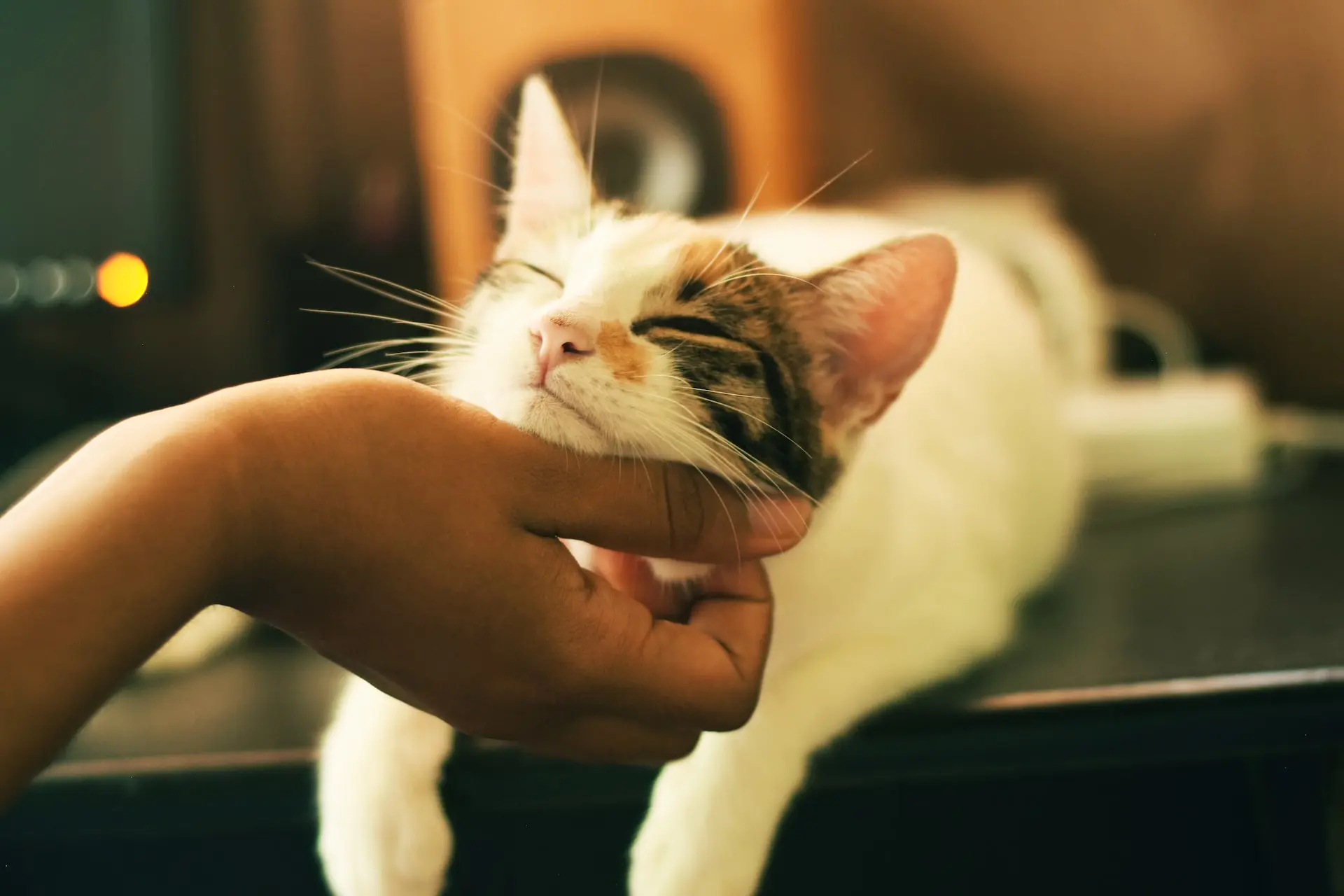Not all cat owners realize that when they adopt or buy their first cat, they sign up for drooling. Drooling isn’t only for dogs! But before you assume something is wrong with your cat, consider this: why does my cat drool when I pet him?
Is it normal for cats to drool?
Drooling by cats when they are happy and calm while being petted is natural behavior. These cats often develop this propensity early in life, thus it would be unusual for an older cat to suddenly begin drooling if they had not previously. If this occurs, contact your veterinarian to discuss your cat’s sudden drooling.
Why does my cat drool when I pet him?
If your cat drools when you pet him it might be because he’s pleased. Some cats drool when they are fearful or angry, but it is more probable that they are drooling because they are comfortable. Because drooling frequently follows purring or kneading, scientists believe it dates back to kitten hood while kneading mom’s chest to increase delicious milk production. Some cats drool while they are relaxed, sleeping or enjoying human affection. It simply denotes a physiological response to enjoyment or excessive relaxation. Cats who are prone to motion sickness may also exhibit fear drooling. The mostly likely reasons why my cat drools when I pet him are,
Feeling soothed, relaxed or content
When a cat is content and enjoys being touched or hugged, they may start to drool. This is normal and only shows a physiological reaction to happiness. Similar to how some cats may drool when sleeping, this is likely due to how comfortable they are. Imagine it as the tiny damp spot you discover on your pillow after a restful night’s sleep. Drooling like this is frequently a sign of a content cat.
Intense fear, nervousness or anxiety
When they are really nervous, frightened, or afraid, some cats will drool. Drooling is a frequent side effect of nausea and the anxiety that comes before vomiting. Being nervous or driving in a car can both cause motion sickness. In any case, it usually comes to a stop at the conclusion of the journey. If your cat drools out of fear, it won’t continue
Besides when I pet him, there are other reasons why my cat drools
Dental disease and cat drool.
Some medical disorders, such as dental disease, cause oral discomfort. Drooling is an attempt to eliminate or soothe discomfort in the mouth or throat in certain instances. Excessive drooling is sometimes caused by dental problems. Tooth or gum disease affects up to 85% of cats over the age of three. The resulting saliva may be blood-tinged or smell unpleasant.
Respiratory disease and cat drool
Respiratory tract viruses can occasionally induce oral ulceration(s) and drooling in cats. Many of these cats have a history of:
- Sneezing
- Excessive nasal discharge
- Discharge from the eyes
- Not consuming food.
Oral cancer and cat drool
Oral malignancies, which can originate anywhere from the tip of the tongue to the back of the neck, are significantly less prevalent in cats than dental or viral infections. These disorders cause excessive and persistent drooling. This is a sign that your cat should have a thorough checkup by your veterinarian, with a focus on dental issues.
Foreign bodies and cat drool
Excessive drooling can occasionally be caused by a foreign body. A blade of grass, a sewing needle, or a small fish bone may be swallowed by a cat and become trapped in the mouth or esophagus. They may paw at their lips or attempt to vomit, but the basic truth is that swallowing is painful for the cat, and they will not swallow regularly.
Should I be worried when my cat drools while I pet him?
If your cat generally drools, there is no need for concern. The majority of the time your cat will drool for a good purpose. When your cat drools, there’s no need for you to worry. You should consider whether something could be wrong if your cat is drooling and displaying a negative change in behavior.
Drooling is not typical in cats that are content and healthy. Drooling may indicate a health problem if your cat, who was formerly outgoing and active but is now suddenly sluggish and hides for the most of the day.
It could seem like a non-answer to a relatively straightforward topic, but this is the reason I always advise that you should listen to your cat. If there have been any adjustments made to their dietary practices, attitude, or conduct, let me know.
Conclusion
If your cat drools after being petted, he could be happy. Although some cats drool in times of fear or rage, it’s more likely that they are doing so because they are content. While they are at ease, napping, or receiving human attention, some cats will drool. It simply refers to a bodily reaction to pleasure or prolonged relaxation. Drooling out of anxiety is another sign in cats who are prone to motion sickness.
FAQ
Should I be worried when my cat drools?
That is dependent on the situation. Nobody is more familiar with your cat than you. Drooling can be a normal reaction and is nothing to be concerned about whether your cat is pleased, drawn in by the perfume of exceptionally strong food, or feeling a little worried. However, if your cat is also vomiting, hiding, having diarrhea, or panting in addition to drooling, you should take your cat to the veterinarian immediately soon.
Why do cats drool when I pet him?
Because they are so preoccupied with the present! They are so at ease and enjoy the attention and care being shown to them that they exhibit this physiological reaction.

